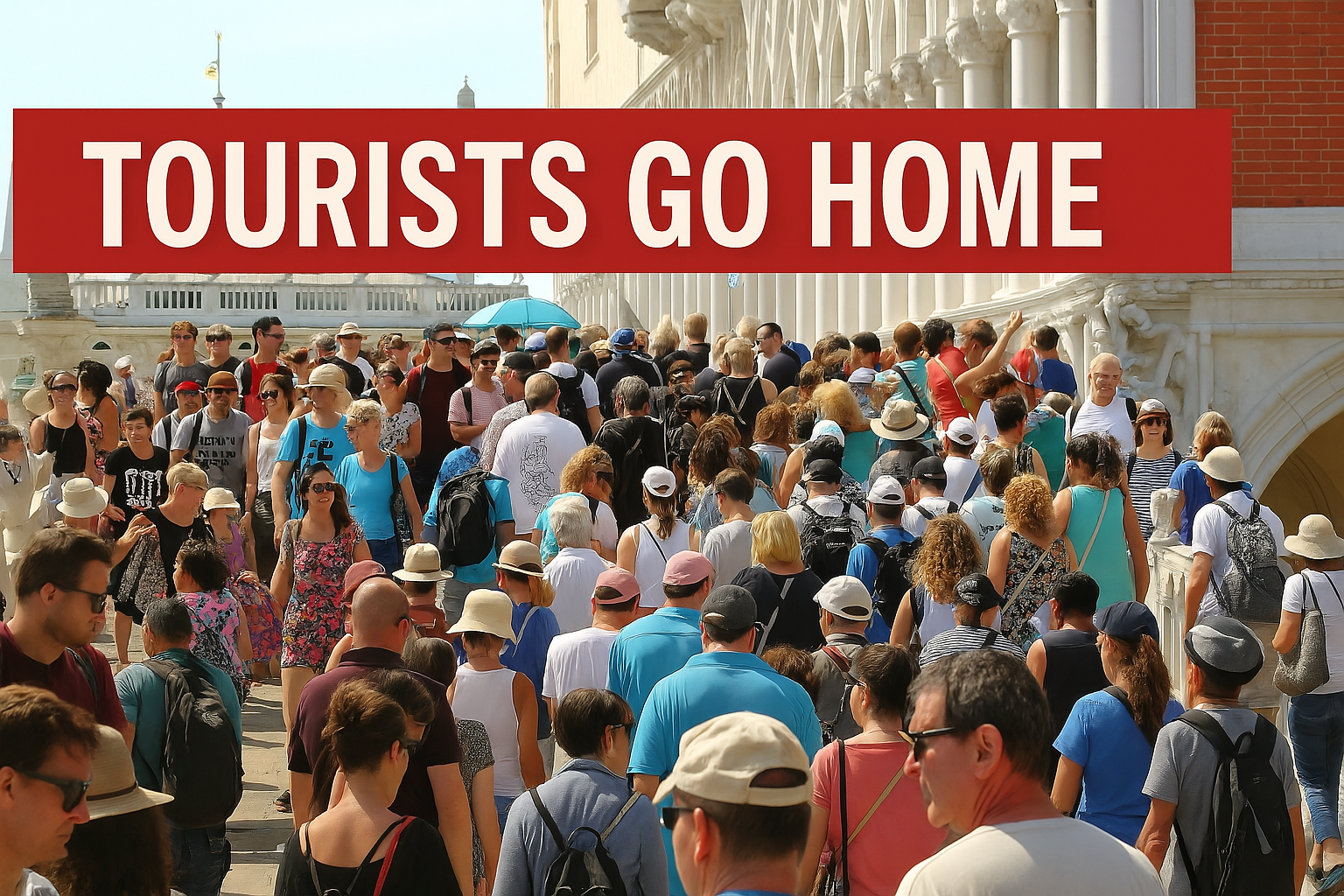Tourists vs Migrants: A Mirror of Resistance

What the pushback against visitors reveals about identity, belonging, and the psychology of arrival.
In many of the world's most beautiful, welcoming places—from Lisbon to Mexico City to Lahinch—a curious paradox is unfolding:
Those who once arrived as strangers are now among the loudest voices saying, "Enough."
From protests over short-term lets to calls for tighter immigration policy, the same emotional and cultural logic is playing out—just dressed in different clothes.
What if the growing backlash against tourists isn't all that different from the one against migrants?
Let's take a closer look at the mirror.
🙋♀️ "I Made It—Now Let Me Guard the Gate"
Once people arrive—whether as digital nomads, returning emigrants, or new citizens—they often grow protective of the place that drew them in.
They've formed roots, developed routines, learned the unspoken rules—and now they feel entitled to shape who else gets in.
🎯 You'll hear it in:
Long-term expats in Bali campaigning for bans on misbehaving tourists
Digital nomads in Mexico City calling for Airbnb restrictions after moving in via Airbnb themselves
Transplants in Dingle worried about summer tourism overwhelming "their" new quiet life
"I moved here for the peace and authenticity—now I'm fighting to stop others from ruining it."
🔥 Cultural Protectionism
Both migrants and tourists are often accused of not respecting local culture or of "changing" the fabric of a place.
Tourists: "They don't know how to behave here."
Migrants: "They don't speak the language."
Long-timers: "This isn't what it used to be…"
"These are the same themes heard in migration debates across the world. Only the language changes."
The impulse to protect identity and tradition is understandable. But it often creates an invisible wall between us and them—even if "us" only got here last year.
😵💫 Economic Strain = Social Friction
Whether it's short-term tourists or long-term migrants, the story often revolves around money:
🏘️ Tourists drive up rents and crowd public services.
💼 Migrants take jobs or compete for social housing.
In places like Amsterdam, Dublin, and Maui, housing is the frontline of resistance. People feel squeezed—and when that happens, newcomers often become the scapegoat.
Even in scenic towns across the West of Ireland, pandemic-era arrivals now find themselves both victims and contributors to rental shortages. Some are now actively lobbying against short-term lets—even though they arrived through one.
🌍 Identity, Belonging, and the Fear of Change
This is where the resistance gets emotional.
Once you feel like a local—whether it took 3 years or 3 months—you begin to develop a stake in the "way things are."
🛑 Noise, newness, disruption—these aren't abstract threats. They're personal. Even if you once were the disruption.
This is why newcomers often become gatekeepers. They're not hypocrites—they're just human. They've gone from outsider to insider, and they want to preserve that sense of home.

🙈 Hypocrisy? Or Just Human Nature?
Of course, there's a moral tension at the heart of all this.
Many of the voices calling for tighter borders once benefitted from open ones.
The people fighting Airbnb creep once rented an Airbnb.
The digital nomad critiquing new tourists was once a tourist themselves.
But this isn't just hypocrisy—it's moral licensing. Once we feel like we've paid our dues, we believe we've earned the right to pull the ladder up.
And that ladder-pulling is global.
🇮🇪 A Quick Side Note on Ireland
Ireland, for all its friendliness, isn't immune. We've seen:
Pushback in Dingle, Westport, and Lahinch against overtourism, often led by people who moved there recently for peace and quiet.
Concern in Dublin about Airbnbs hollowing out communities—sometimes from expats who first arrived in short-term lets.
Debates around immigration and housing that mirror global conversations, with returning emigrants occasionally voicing the strongest concern about social resources.
It's a reminder that belonging is as much about timing as it is about place.

✍️ Final Thought: The Real Question Behind the Pushback
Whether it's a cruise ship full of tourists or a wave of migrants seeking opportunity, the same core fears drive resistance:
Fear of being pushed out 🏚️
Fear of losing identity 🧬
Fear of change 🌀
So maybe the real question isn't "Who should be allowed in?" But rather:
How do we build places that can absorb change—without losing what made them special to begin with?
💬Have you seen this dynamic in your own city or community? What should the balance be between openness and protection?👇